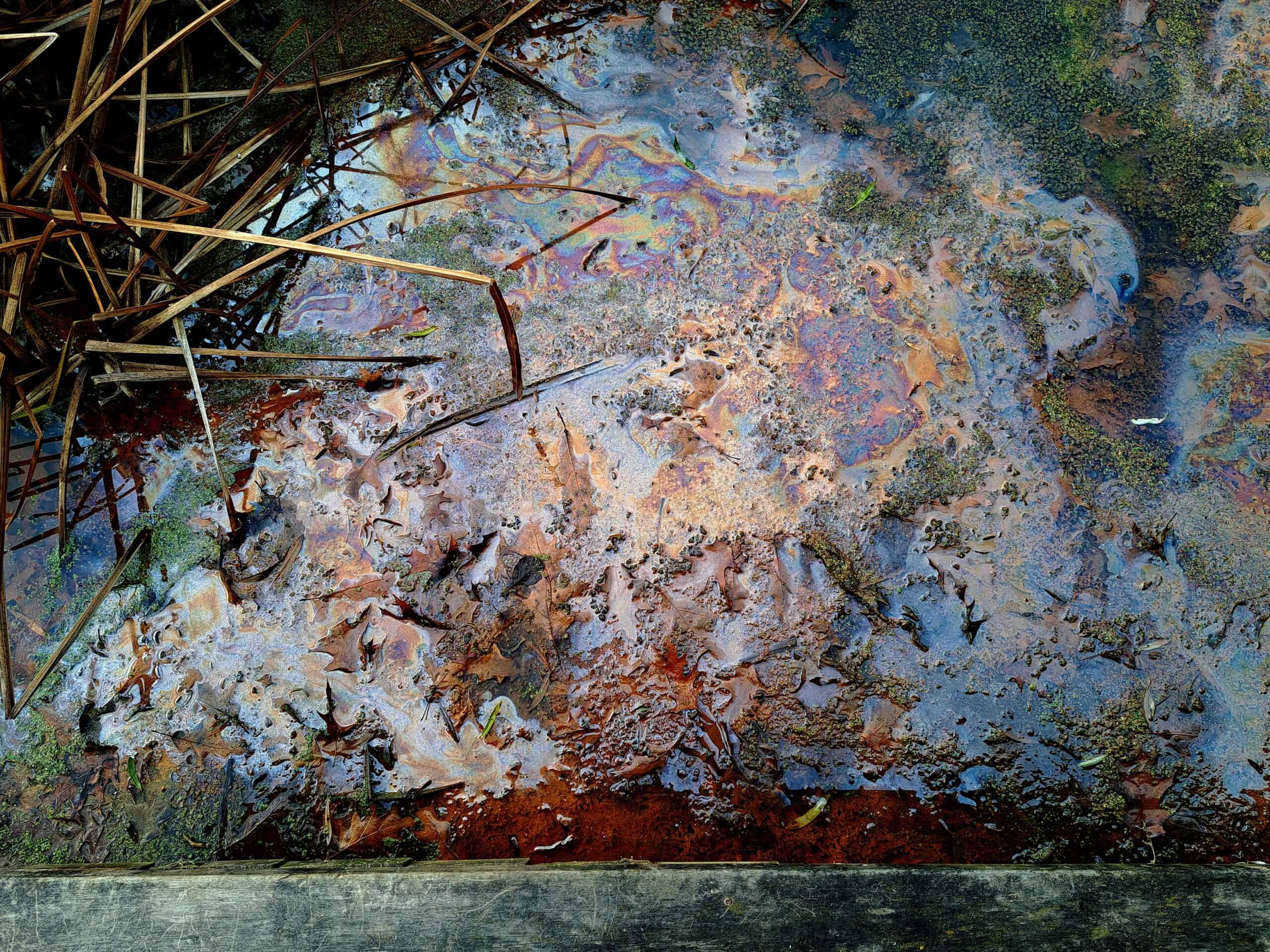Narcissism and Spirituality

“In everyone there is observed supreme love of oneself”
– Ramana Maharshi
Narcissism is a fascinating and increasingly popular idea. It is a prevalent condition that most people don’t encounter in its most pathological, hollywood-style exaggeration – but nonetheless it seems that I regularly hear from people accusations that the person they are currently annoyed with, be it and ex-partner or family member, “is a narcissist”.
But there is a difference between someone who is truly diagnosable with Narcissistic Personality Disorder, and someone who is just vain, or selfish. What is the difference? Why does it matter? If you want to know the first kind, people like Donald Trump give us the obvious, easy target. That is an exaggeration of the diagnosis checklist, so much so that you wouldn’t believe it if it were a fictional textbook example.
But our social media is flooded with a milder grade of narcissism – not a diagnosis, but vanity and ego and selfishness that may be mentally unhealthy in different ways. Sometimes it seems like a whole generation are struggling in this area. Maybe there is reason they are called the “Me Generation”. People seem to love to throw around the word, and call people narcissistic just because they are being selfish. But it is not always that easy to discern.
I’m less interested in the strict mental health definitions here, but the innate tendencies that drive this, and what it might show about the nature of our mind. When we get into it, a study of narcissism is the study of the result of a belief in a totally separate, individual self. And so it stands at one end of a spectrum which is really about identity and connection. It is, for want of a better word, an ultimately spiritual issue. If we can understand it as such, things may become clearer.
If narcissism is one end of a spectrum, then what is the spectrum, and what is the other end of it? If we can find that out, we will know a lot about how we work in this world. As a therapist in private practice, I rarely get to see true narcissists. Statistically, they almost never seek out treatment. Outside of the prison or addiction rehab system, it’s a very rare diagnosis. (inside the prison system though, look out! very prevalent). Generally, for a narcissist, they usually don’t think that they have a problem, it is simply that other people are getting in their way. Therapists usually just see the hurt people that they have left in their wake. Those hurt women and men usually don’t realize until very late that they were involved with someone problematic, because a narcissistic will – deliberately or not – imply that the problem is always on the other person. It’s enough to drive people crazy. They are the grand masters of what is called, “gaslighting”.
Why is that? Simple. It is because they truly, deeply and honestly, do not and psychologically cannot consider that they themselves are the problem. It’s like, that’s the core problem. So when shit hits the fan in a relationship – it has to be you, not me, they think, and often say. For the other person involved, it may be very convincing. Real narcissists tend to develop intimate relationships with people who tow the line of their grandiosity too, so that often necessitates a person with a much smaller sense of self – which then makes them very vulnerable to the gaslighting effect, where they will consider that things are their fault when they are not.
But getting back the generation of Me, and rise of vanity, it is interesting to note that this is a very North American phenomena. I mean, in some ways, Donald Trump is like this living, breathing manifestation of American ideals – like the embodiment of capitalism. And the prolific egotism we see in every avenue of media, it tends to be celebrated. Narcissism is, in some ways, almost culturally approved. When we are literally voting for, cheering for a person that is profoundly and obviously mentally ill to anyone who has a clue about these things – well that’s a real problem. That’s an illness in the social fabric.
And it is quite embedded, and fairly insidious. We tend to socially reject people who are overly anxious or depressed, or small. It is built into our educational system to make us compete with each other, and being better, being more, striving to be the golden individual – it’s pretty much the name of the game. I might venture a guess that this is simply a product of our whole Western civilisation, which has embedded in its cultural norms the values of capitalism, or at the very least the good ole’ “protestant work ethic”. Or perhaps it is deeper and older than that, in the way that we idolize the powerful and the wealthy. Certainly, in our social standards, it is not hard to see that being depressed is very unproductive and can be a real drain on the personal and collective economy. However, narcissism can be quite the opposite. I want to be clear that I don’t believe it is actually a boon to our culture, but it is certainly socially acceptable in many of its forms.
Narcissism is found in huge amounts of our world leaders, CEO’s, and business-types, simply because the power hungry, self-serving, and greedy nature are precisely stated values in a capitalist society. There is a bit of it in all of us – and it would be good if we could notice that.
Narcissism is essentially a perspective of reality that sees the individual egoic self as both separate from the rest of humanity, and necessarily more important. Really, it is a stage of growth of a child, but some people get stuck in it. We all go through it though. There is a time in our early years, likely before the age of 6 or so, that we are necessarily the center of the universe for ourselves (and maybe our parents, if we are lucky). It is our way of starting to individuate as our own person. Our brains are really only capable of being self-referential for a while. But for some, when their needs are not met at this stage, it may not progress, and that can become a proactive and dominant personality.
The way that the mind can justify its importance and create security in a world of threatening separation is to assume that it is essentially better than the others – that is just a natural way for this insecurity to be negated. Narcissism is just a protective reaction to profound insecurity about the self and the world. Like any personality disorder, it is a defence mechanism so big it has essentially become the person.
So what is the other end of the spectrum? Like, what is the opposite of Narcissism? Well one way to consider this would be the either a complete lack of separation (which we will get to) or to consider, more conventionally, a standard sense of disconnection that results in a defence that deflates, rather than inflates the sense of self-worth. In this case, the opposite end of the spectrum would be pathological shame, which we often see through crippling anxiety, depression and codependence. This is merely another unconscious interpretation of the sense of separation. In developmental psychology terms, this would be another coping strategy when the child’s needs are not met. Instead of enlarging the self to become everything as a way to cope by an attempt to control others and the world, it reduces its self to nothing, which then surrenders all control to another person or system that can give it a sense of security.
Can you imagine what happens when a person on one end of the spectrum connects to a person on the other end? Well sadly, it feels to both of them like the most incredible falling in love. It feels like a perfect match. But it’s more like a match that lights a fuse, because welcome to an explosive, abusive and toxic relationship. Many therapists have wondered and theorized why so often the most tumultuous relationships seem to be between a Borderline Personality Disorder and a Narcissist. That may be the simplest and most generalized answer, right there.
I find it fascinating and of great importance to note that at the core, all of this is always about one’s definition of self. As we continue to see, this is the entire determinant of not just mental health, but general well-being, and even spiritual realization. All of these are simply, and solely, about your foundational self-concept. When you think that you are separate from others, and take this to an extreme, then you will necessarily and logically end up at either narcissism or shame. But if you see that we are connected to others, you will necessarily and logically end up at compassion, generosity, and wisdom. Self-love is inherent in us. It is as natural as the wind.
The problem is not love of self. The problem is the belief in separation.
The problem is in a false definition of self. Adjust, expand, and correct the definition of self, and then our natural self-love becomes kindness and beauty and all good things.
So there might be another way to interpret the opposite of the spectrum in which narcissism is the one extreme. This would be a spectrum not of how the separate self is defended (which is basically the entire study of conventional psychology) but a spectrum of the degree to which one knows and feels separation. This is an entirely new spectrum. In this one, the opposite side of the narcissist is more like the buddha, or Jesus, or just God.
Whatever you call it, this is what life is like when there is no separate self. In this case the identity has shifted from a localized, seemingly single body, and knows its own awareness as being not merely connected, but literally the same indistinguishable stuff of which all else is made. It’s what we have called enlightenment. It is the deep knowing that there is no separate self; that whatever we are, it is one thing.
If you can imagine what life is like, from that perspective, for a moment, just try to consider it. Can you see that it is a feeling of total love, total generosity, total celebration. And who does that love get directed towards, if there is no separate self? Words get tough here. There is just love for love, love for everything. It leaves nothing out. We could say that it is absolute love for God. But it is more like God’s love of God, God’s love of self. But god is such a clunky word.
It is just awareness, knowing itself.
Love of self is intuitive, natural, and inherent in all of us. There is no one who is actually devoid of self-love, though it can certainly be obscured by judgement. And it seems it can also be deflected and projected onto others. I have met people who have sworn that they have not an ounce of self-love, but upon investigation, even their self-loathing was rooted in a belief that if they could criticize themselves enough to change, they would get the love they want from others. It all comes from care. But care for whom?
If one’s own person cannot be loved expressly, we will often target all our love on another person or thing. Like a lover, a pet, a cause or a country or even a team. We are unconsciously identified then, not with a body-mind that we find unacceptable, but with an object we idealize, and can then pour all our love into that thing. It is completely untenable; it is the essence of codependence, but people spend their whole lives in this confusion.
Without the love of self, there is shame, self-loathing and misery, which leads to an inabiliy to self-care, and tendencies to depend on external sources (other people, things, substances) from which to derive substitute senses of validation and worth. Erasing the self is just as pathological as trying to make it superior.
In fact, all love is self-love.
You could actually go as far as to say that there could be no other type of love, since there is ultimately nothing other than self. But this might be pushing in this context.
This is confusing to many on the ‘spiritual path’ who have been taught the ego is the enemy, and that they must dissolve or get rid of it. This concept, while true in some ways, is also extremely misleading. Early in my life, I loved being on stage and performing, either in plays, musicals, or in bands. But I got shamed for it, and it hurt. People assumed that if I had the confidence to do what i was doing, then I felt I was superior. But perhaps what was actually happening was that they felt inferior, or jealous, and projected that on me. I’m not sure. I was just doing something that felt good and that I loved doing. But i was hurt by that perspective. I didn’t feel like that’s where I was coming from, so I felt that I must be wrong. I took that part of myself and shut it away. I stopped getting on the stage. I decided the only way I would perform would be in an ensemble, and never have a spotlight on myself – so for years I sang in a choir. I thought I needed to get rid of this self. I tried for years to do so. But you don’t get rid of the self. I can see that now. You don’t need to get rid of it any more than you need to get rid of the snake on the trail that turns out to be a rope. You just have to see it clearly. It was never there to begin with. There is no separate self.
To know yourself as beautiful and wonderful – this is not conceit unless you fail to see that everyone has the same beauty and capacity. Why do we shame each other for being brilliant? Why do we hide our light? On the other hand, why do we worship it? It’s not special. It is in all of us. That’s the whole point. As Whitman said, “every atom belonging to me, as good belongs to you”. And as another lovely person also said, “I and the Father are One”.
It is not the self that needs to disappear. That is not possible. It is the sense of separation that disappears, and when that happens, through progressive, logical inquiry, we simply understand more and more the actual, true nature of things. Which includes us. How and why else would enlightenment be also known as “self-realization”? Why would one of the most respected spiritual teachers of our era, Ramana Maharshi, say that the only thing we need to do in our spiritual journey is to find out the answer to “who am i?”.
I love this passage from Byron Katie, which says this so well:
“That’s how i think of compassion: pure selfishness. I’m in love with everyone and everything i see, because it’s all me. I sometimes say that it’s total vanity. Stephen tells me that the old meaning of vanity is “emptiness”. I love that.” (p.31, A Mind at Home with Itself)
If the definition of God is that which is omnipotent, omnipresent, omniscient – then there is nothing but God. It’s the only thing. And all love is just God celebrating itself. God, the true narcissist!
But of course it only seems that way when we force these ideas to fit with our language; when we personify and anthropomorphize what is beyond all shape or concept. Ah, language creates such a dangerous labyrinth, we do not even know when we are lost.
If you don’t think there is anything worth finding inside yourself, you will continue to look elsewhere for your happiness, and ultimately fail. On the other hand, if you don’t think there is anything worth finding that is outside yourself, then you will never let the world into your heart, and you will fail to find ultimate happiness. These two core errors represent, I believe, the spectrum of human suffering. And this is why it is true that for some people, we need to ‘build the ego before we can dismantle it’. First we have to correct the imbalance, one way or the other, to get a person to relative self-acceptance, before they will be able to approach the true intelligence of their nature without spiritually bypassing.
It is fascinating to look at cults and religious leaders in this vein, for in that microcosm we see simply the reflection of both sides of our self – the delusional self-aggrandizement of the narcissistic, charismatic leader, and the equally delusional, inverse dynamic of the crowd of followers who have forsaken their own power and abase themselves to a person of holy worth. Neither leader nor follower abides in heaven.
That is not to say that honest, true spiritual teachers don’t exist: they certainly do. But the real ones are never teaching anything other than equality, and never from any other place other than humility. And humility might just be the best word to keep in mind as we consider the balance of this spectrum. Humility is not self-loathing. Humility is a tender bowing-down, a river embracing the sea.
As the wisdom of tragedy has long sought to teach us, ‘after the pride cometh the fall’. So too do Sophocles and Shakespeare show us the wisdom of the “fool” – Falstaff’s intelligence in knowing how not to take yourself so seriously – the capacity to walk in step with the king, and get drunk in the raucous saloon. All of these things have their place within us, and we are all in this together. And nobody -nothing – could be holier than thou.
Not any person, not a star, not a blade of grass.






